|
Arts organisation Metal's ambitious Estuary festival closed last weekend with Sound of the Thames Delta, an exploration of the musical heritage of the Southend area and the relationship between music and place. I can think of a few more South Essex-based musicians whose thoughts on the subject would have been welcome - Johnny Navarro springs to mind, as his brilliant novel Kill Devil Delta is set around Leigh-on-Sea and the Thames Estuary (and is sold with a CD of tracks from local imaginary band Crowstone!) The relationship between music and place: this is an endlessly fascinating subject, one that can be observed, analysed, dissected and commented upon for ever and ever. We all have our very own take on the subject, our unique personal journeys through music and place, perhaps exacerbated if we happen to be a creative person - music and place feed into what we produce ourselves. This is something I am very much working on/with at the moment with my third novel, The Right Place - I am trying to construct a contemporary narrative rooted in the ancestral landscape of Dorset and inspired by the lyrics of a PJ Harvey song, itself written about a particular Dorset location. Events such as Sound of the Thames Delta help me find inspiration and motivation by looking at what other artists and writers do, and how they do it. Sound of The Thames Delta took place in the criminally under-used award-winning Royal Pavilion at the end of Southend Pier - the world's longest pleasure pier. Unfortunately, we were unable to attend any of the morning sessions on both days for reasons too boring to mention, but we still managed to catch a few talks and walk around the huts of the Wish You Were Here installation at the entrance of the pier. The photos below were obviously taken on the Sunday, when the sun came out to play! The long walk to the end of the pier is always bracing, and last weekend, nobody had the choice: the pier trains were not running... The five shelters along the pier walk had been turned into exhibition space for the Infinity exhibition by photographer Iain McKell, whose defiant, striking portraits somehow fitted their environment (the metallic structure, the empty rail tracks, the agitated sea and the gusts of wind...) Some of the talks were centred around the Southend scene(s) - which I admit to not knowing well (London has been my playground!). The area used to be an important incubator of talent, musical or otherwise, and the importance of "Southend Tech" on creative minds was celebrated in We Remain Faithful to the Alternative (the guests talked about the legendary club Crocs in Rayleigh, later to become the infamous Pink Toohtbrush). Below is the talk Southend: Dub Capital of Europe? - a look at the vibrant reggae/dub sound system scene in Southend... Surprising! Between 2002 and 2006, there was an iconic club in Southend called Junkclub (this links to a Guardian article which is very sniffy about Southend, but does mention the Sheffield-born luminaries whom feature a bit later on on this blog ), which was the subject of Hedonistic Haunts for Wild Youth. Locations that Make the Music was an absolutely fascinating talk hosted by journalist Pete Paphides during which Chris Watson (Cabaret Voltaire) and Martyn Ware (Human League/Heaven 17) took us on an enthralling journey through sounds and music concrete, from their debuts in Sheffield through to their respective careers as a sound recordist/composer and soundscape designer/composer/lecturer. We listened to "train music", to some curlews, to a little bit of Pierre Schaeffer and were told to check out the Mexican legend of The Llorona (The Crying Woman), the ghost who invited herself on one of Chris Watson's field recordings. As an industrial music fan and Nature lover, this talk was just heaven to my ears... I could have listened to them for hours... When young people say they have a passion for music, it is very important to tell them about the exciting opportunities available to them - being a pop or rock star is definitely not the only option - if you are ready to work hard for your art... And we adults should be encouraging them and opening their horizon to the possibilities.... Those two gentlemen are here to show them the way! On Sunday, we travelled to The North with Paul Morley, who talked about the influence of Manchester and the north on music and in shaping who he is; he also read some extracts of his book, The North (And Almost Everything In It). Interviewed by Metal's founder Jude Kelly (who happens to be from Liverpool), Paul Morley eloquently tried to make sense of the link between place, music and identity. This is something that has always interested me, and I do think about it a lot. Interestingly, my personal experience and take on the relationship between those three elements is almost the opposite of Paul Morley's. If you have a look around this very website, you will notice that I am a big fan of Robert Macfarlane's nature writing, probably the only non-fiction I do read. In his books and essays, Nature is never twee, simple, calm or pretty... He always emphasises the dark nature of Nature, its rawness, its harshness and its occult mysteries. In his documentary Wild Places of Essex, he tried to capture the essence of the area in which nature and urbanism rub against each other and try to get along. He walked around the edges of the Edgeland, the topic of the captivating talk The Wilderness is Much Closer Than You Think... It was a real privilege to listen to artist and musician Karl Hyde (KARL HYDE, PEOPLE!!!) and respected filmmaker Kieran Evans talk about their 2013 film The Outer Edges: a poetic, arty, socially aware, moving, democratic filmic essay about the Essex egdelands, those areas between town and countryside which are forever forgotten. Beauty and hope is found in chaos and decrepitude. I loved the interaction between Karl and Kieran; you could see a real bond of friendship there. They talked about their work on the documentary with warmth and intelligence. The film came out the same year as Edgeland, Karl's solo album which was intricately linked to the film project. With them was award-winning writer Michael Symmons Roberts, whose book (with Paul Farley) Edgelands is a tribute to those in-between zones which are always overlooked; his edgelands are located in north west England - an area scarred by post-industrialisation. The festival bookshop had ran out of copies of Edgelands when I went to get the book, but I will make sure I get my hands on one asap - for inspiration, of course! Edgelands forms a critique of what we value as ‘wild’, and allows our allotments, railways, motorways, wasteland and water a presence in the world, and a strange beauty all of their own. Here's The Outer Edges trailer below. I also recommend watching Karl Hyde's interviews featured on the right hand-side on the You Tube page, in which he talks about the creative process for the film, the Edgeland album and art and music in general. Respect... I feel really privileged to have been there, at the end of Southend pier, able to listen to all those people who have followed their passions and have created, played, facilitated, tried new things... I have learned many things and I have been inspired. Below: Karl Hyde and Kieran Evans walking back to Southend just in front of us at the end of the day on Sunday... A fitting conclusion to this blog! All pictures by Miss Gish and Matt ArtPix
Comments are closed.
|
AuthorI think therefore I write. Archives
June 2024
CategoriesAll Art Books Cinema Culture Events Idea Ideas Inspiration Inspirations Literature Music People Places Promo Publishing Reading Reviews Self Publishing Self Publishing Self-publishing Society Theatre Thoughts Working Work In Progress Work In Progress Writing Writings |
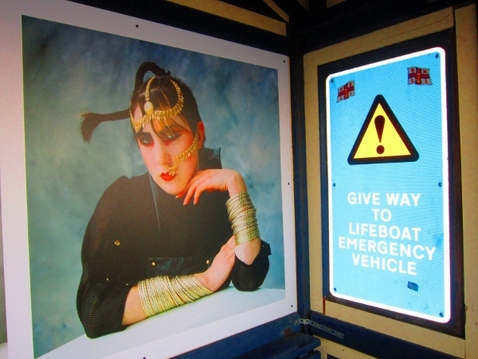
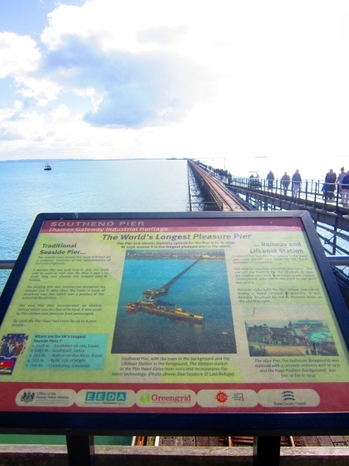
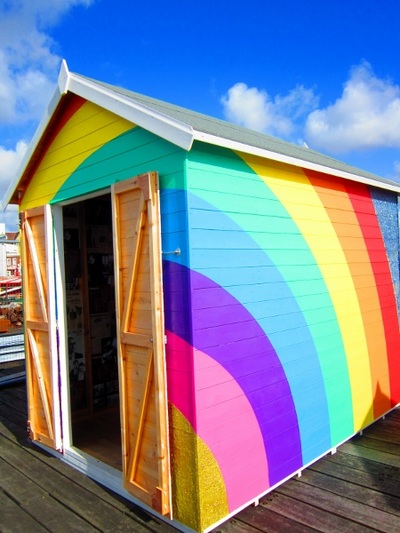
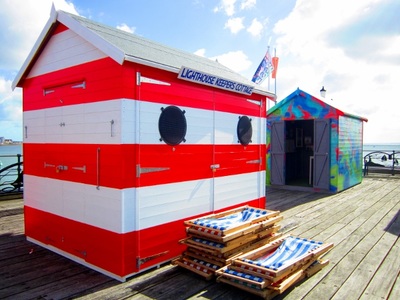
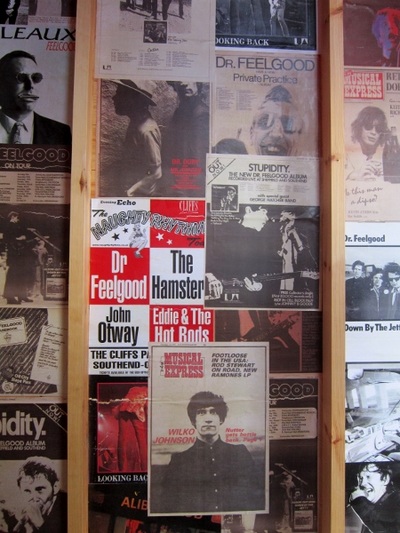
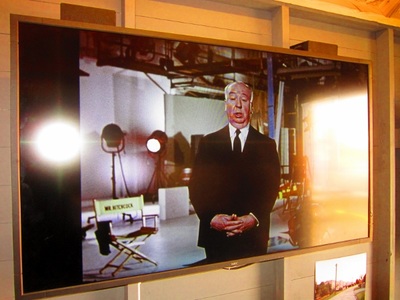

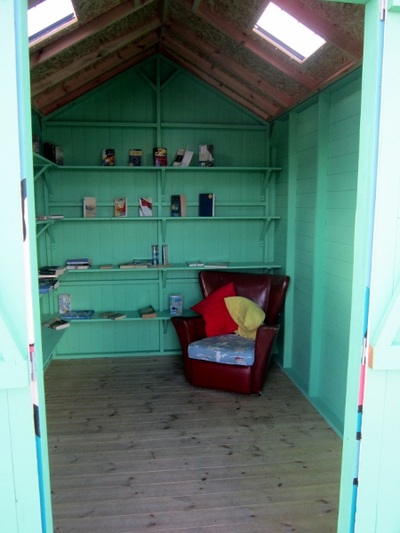
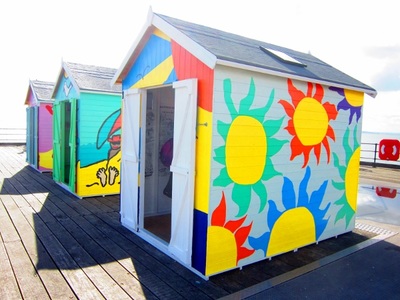
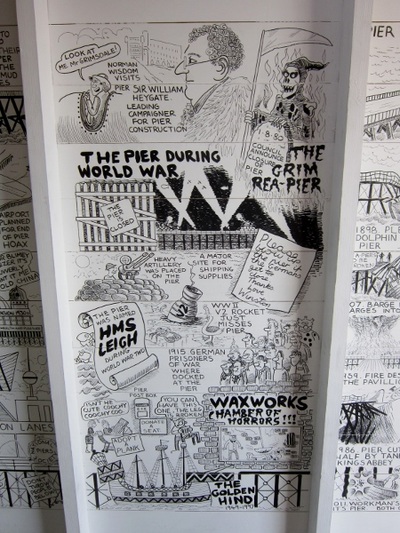
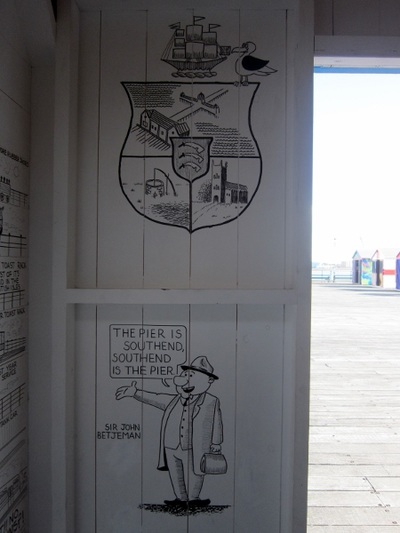
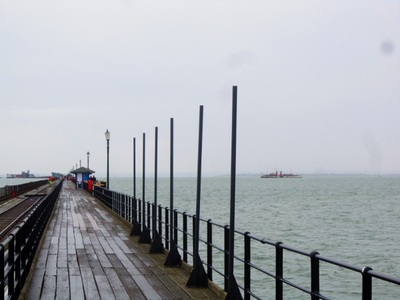
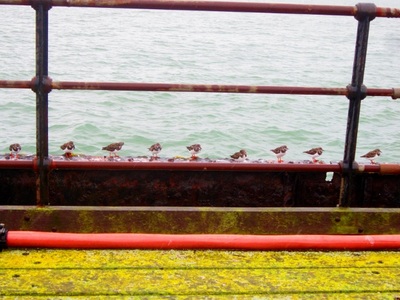
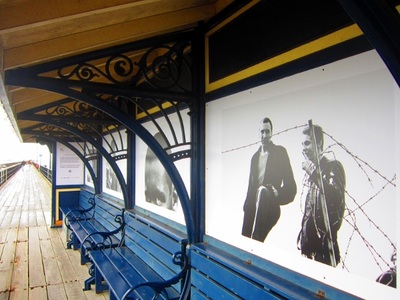
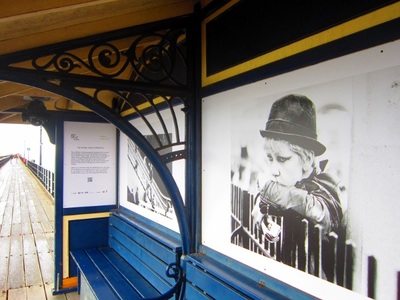
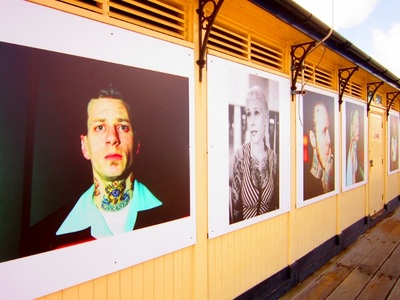
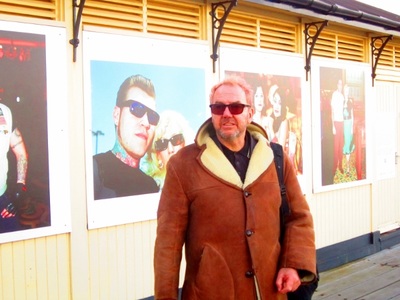
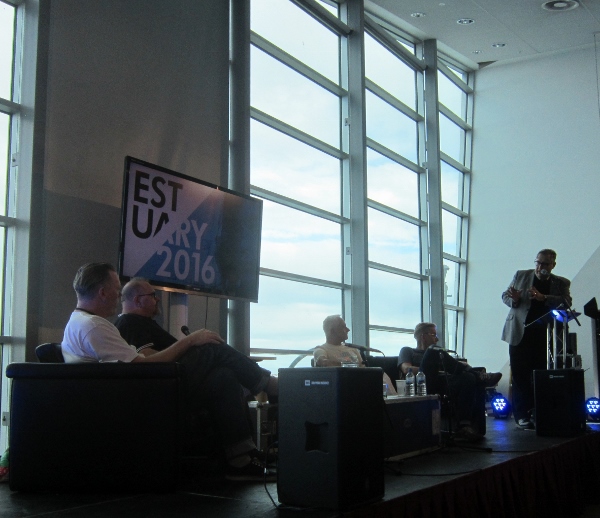
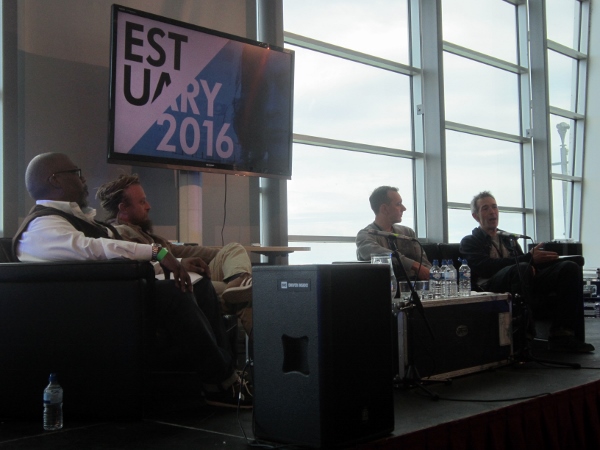
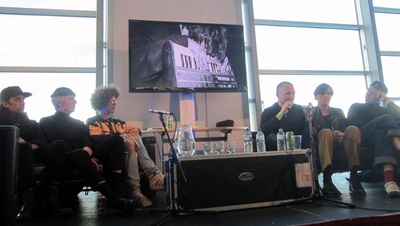
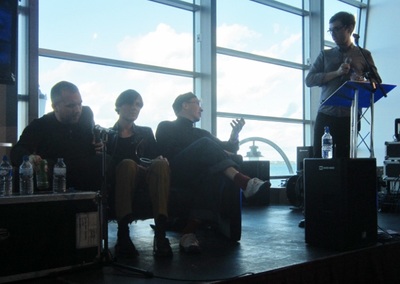
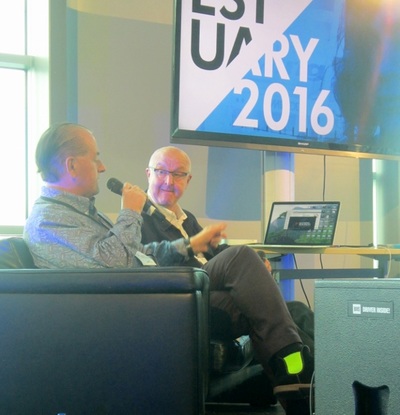
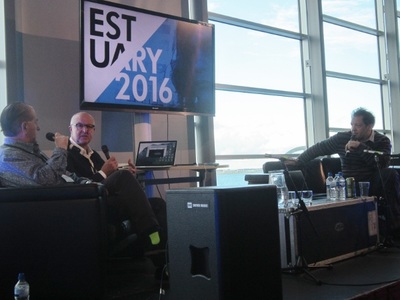
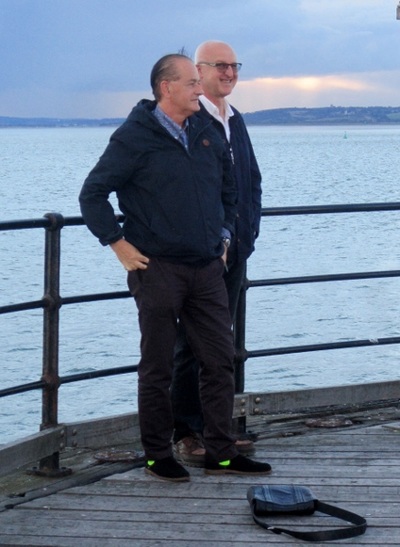
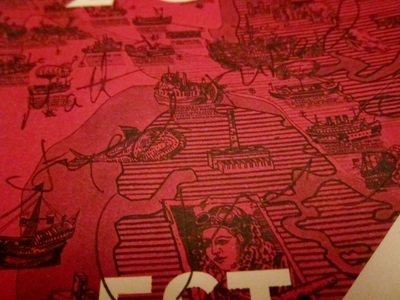
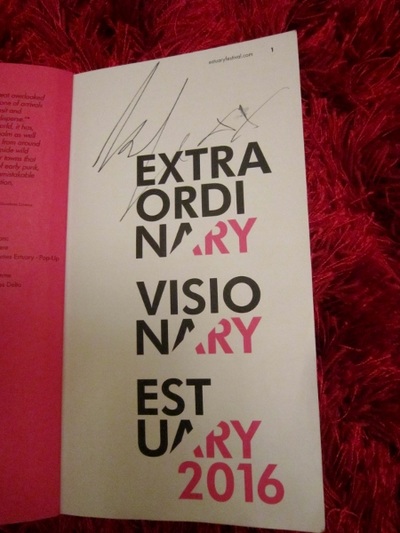
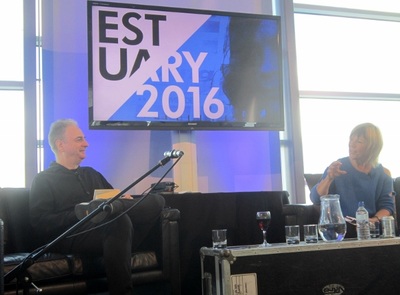
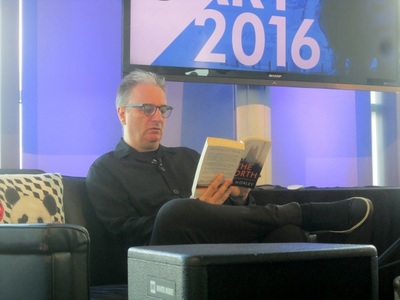
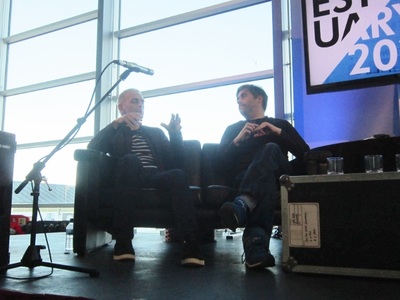
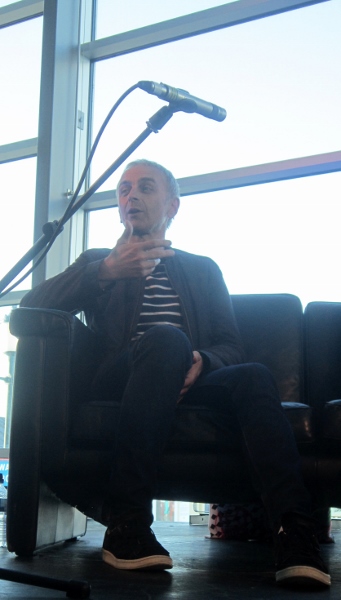
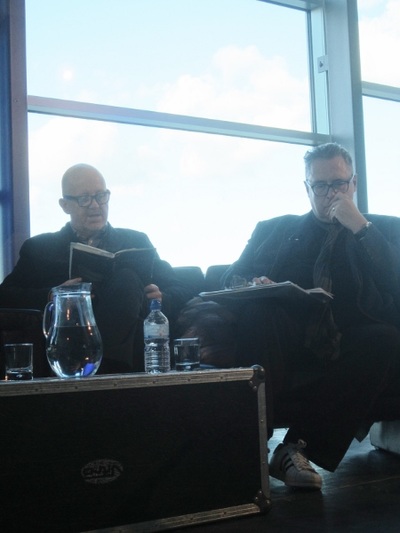
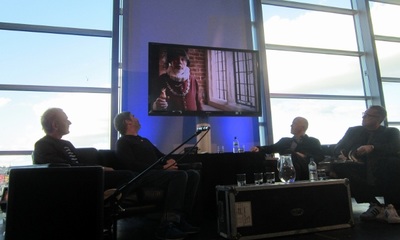
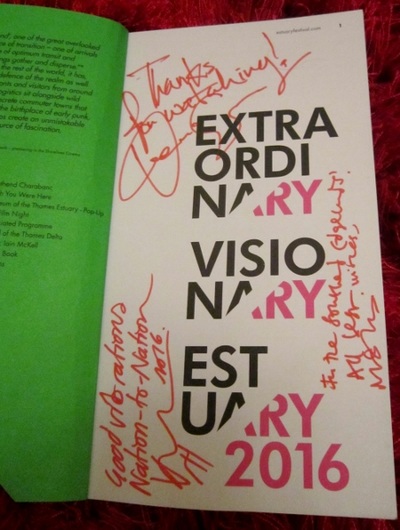
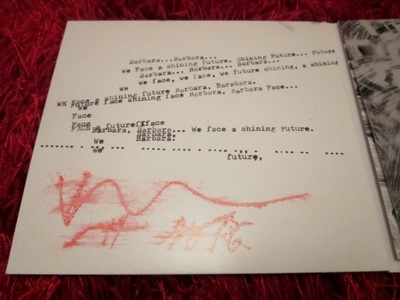
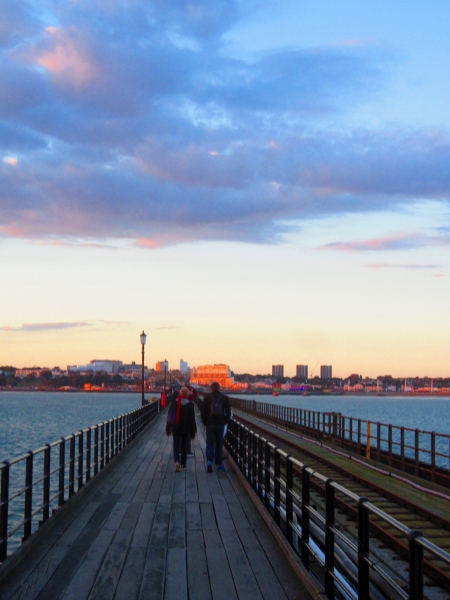
 RSS Feed
RSS Feed
